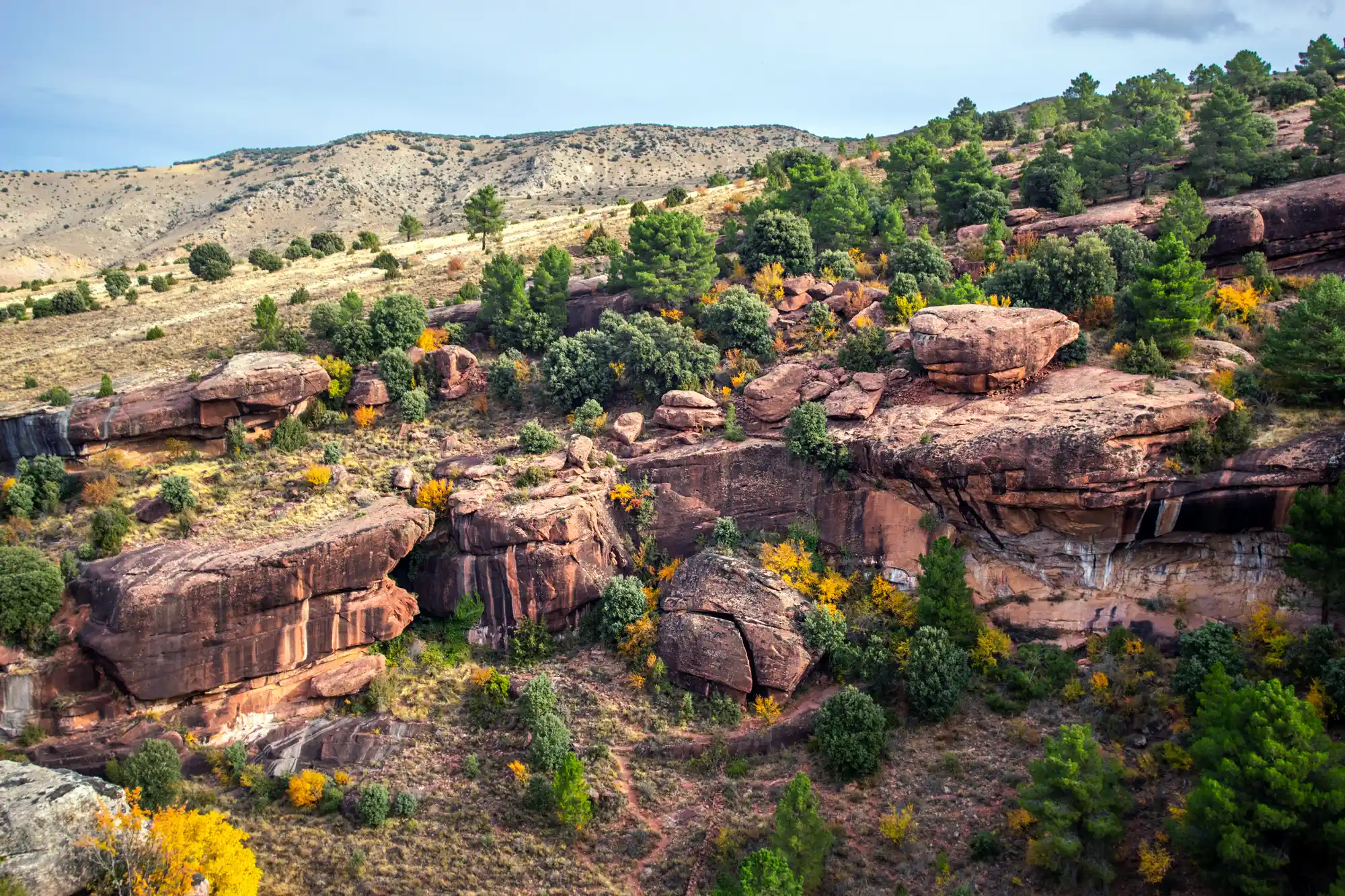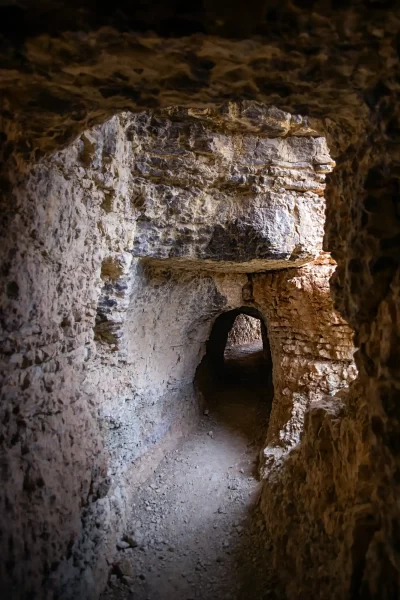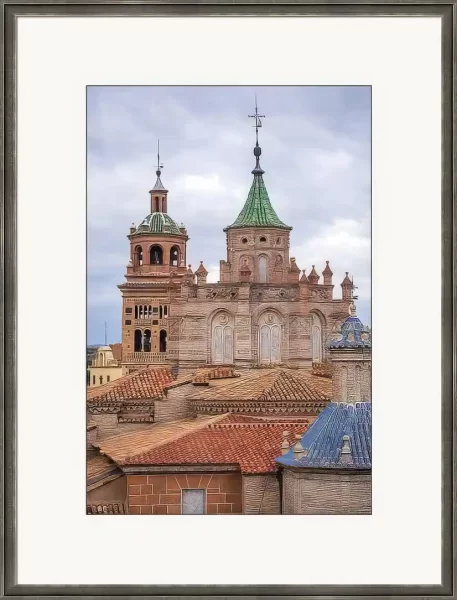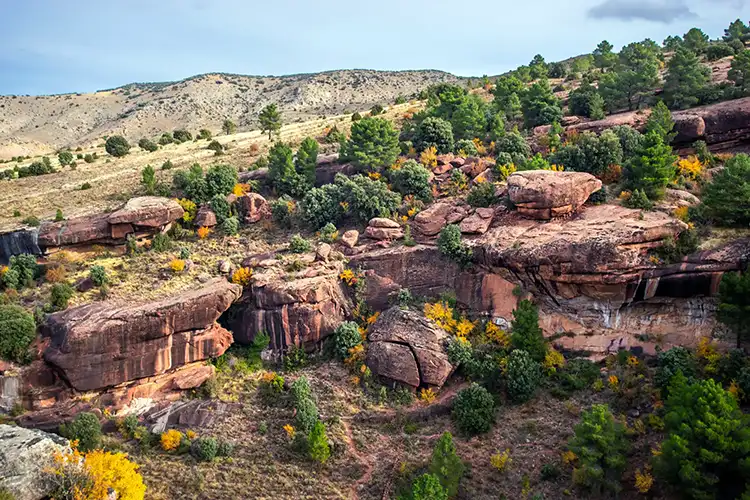Our trip to the province of Teruel was coming to an end. After two nights in Teruel city and two more in the lovely medieval town of Albarracín, it was time to drive back home Valencia. But first, we decided to take in some nature at the Pinares de Rodeno park and crawl through the tunnels of the ancient Albarracín-Cella Roman aqueduct.
Table of Contents
Los Pinares de Rodeno

After just a short, twenty-minute car ride from Albarracin, you’ll find yourself at the Rodeno Pine Forest. But although the tall, fragrant pine trees lend the park its name, they aren’t the main attraction. Instead, most people come for the unique rock formations. Rodeno is popular with climbing enthusiasts, and has over 2000 spots for bouldering. We’re not into either of those two activities, and so we stuck to the hiking trails, seeking out the park’s cave paintings, which are dated between 6000 and 9000 years.
Although there are around 60 cave paintings in the park, most of them are strictly protected and totally inaccessible to the causal visitor. There are some for display, but these are also found in shelters and can’t be approached too closely. That’s completely understandable, of course, but it did make it difficult to appreciate them.
Still, it was fun to seek the paintings out, following the park’s maps and signage, and the Pinares de Rodeno is such a beautiful place to spend some hours, that we can easily recommend a trip here.
Roman Aqueduct

We first noticed the Roman Aqueduct during our drive from Teruel city to Albarracín. It would have been impossible not to, since the ancient construction goes right alongside the road. We decided that, on the way back home, we would stop and check it out.
When thinking “Roman Aqueduct”, you probably imagine a grand, bridge-like structure with stacked arches. Well, this aqueduct isn’t quite as stunning as that, but it’s no less amazing. This is a system of tunnels carved through the rock, which brought water from a spring near Albarracín to a Roman settlement in what is now Cella, 25 kilometers away.
The aqueduct dates from at least the 1st century AD, and its tunnels are surprisingly large and well-maintained. In fact, it’s possible to walk through long stretches of the aqueduct. We did this, after parking at one of the many stops along the A-1512 highway. This was fun, but the whole time I was looking over my shoulder, waiting for the inevitable rush of water to take us by surprise and wash us away.
Before we hit the road back home, we stopped by a shop called Queso Artesano de Teruel and bought some last-minute souvenirs to remember our incredible time in Teruel. Of course, all our purchases were cheese-based, but I think everyone agrees that cheese souvenirs are the best souvenirs.
Rodeno & Aqueduct Info
This site contains affiliate links. We may receive a commission if you make a purchase. More Information!
Pinares Rodeno Photos
Roman Aqueduct Photos
Most images and videos can be licensed for commercial and editorial use, please contact us to find out more.
Pinares Rodeno Map
Roman Aqueduct
Albarracín Aqueduct FAQs
Is the aqueduct still in use today?
The aqueduct became obsolete before the Christian conquest of Cella. Nowadays, a modern pump house uses the original source to provide water to nearby villages.
What was the purpose of the aqueduct?
It’s still not entirely clear what the aqueduct was used for. Even though it provided water to the Roman town of Cella, its size indicates that it might have been used for farming as well.
Teruel Trip Articles
Teruel Souvenirs
A beautifully framed photo of Teruel Cathedral. You have different choices of size, frame and matte color.




Leave a Reply